When a Sikh girl from Udhampur heard her Muslim friend from Rajouri, admitted in SKIMS, requires a kidney, she took moments to offer one. As the media reported her struggle to make the donation, against her parents’ will, Samreena Nazir visited families that had made or accepted an organ donation in recent years. She found the donors and the donation takers happy and healthy, but the society still will take time to give donors the status they deserve
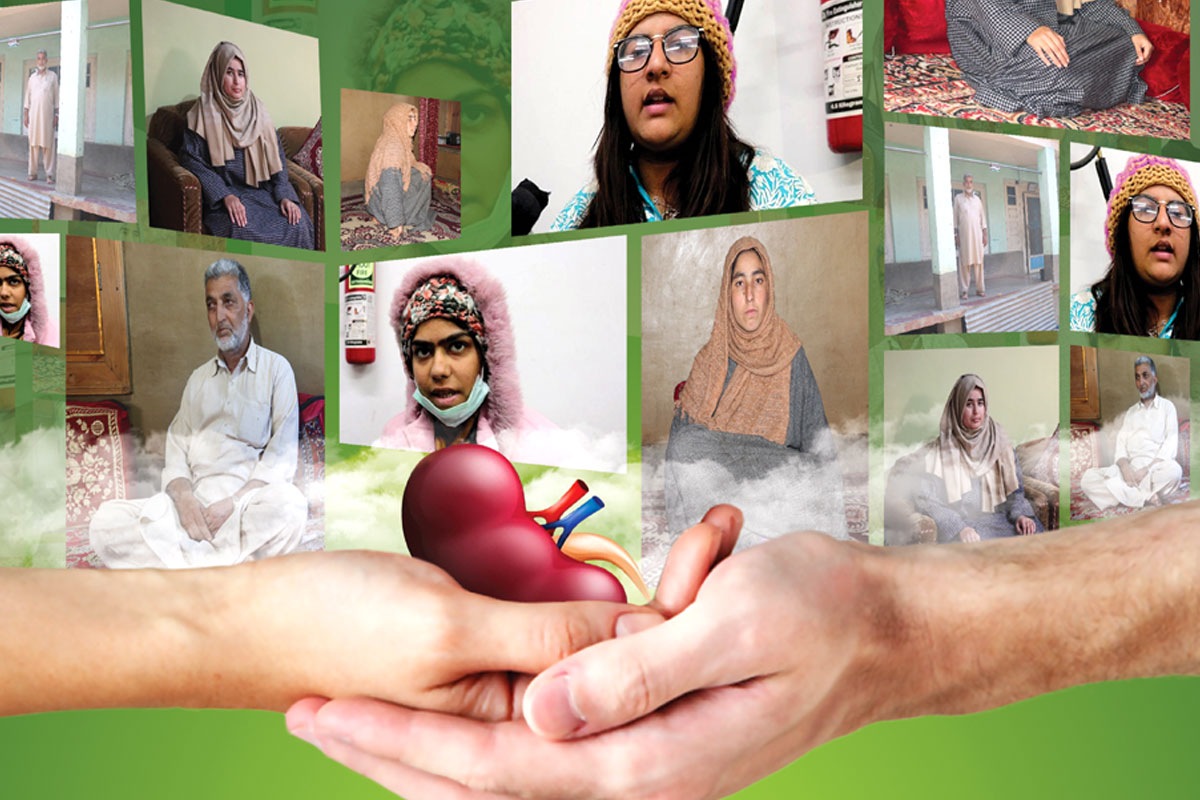
Grieving faces were all around Sheeraza Akhter after 23 days of her mother’s death when her father was diagnosed with kidney failure. It was last week of October 2012, the season that witnesses changing colours when plant foliage turns pale and the leaves fall like death. Sheeraza’s decision gave a literal rebirth to her father, Muhammad Abdullah Najar, 62, a retired Public Health Engineering (PHE) supervisor.
Sitting in the dark room of his mud-brick house at Redwani (Kulgam), some 70 km south of Srinagar, Abdullah has recuperated from a kidney transplant operation and is now living a normal life.
While looking through the only window of the room towards the brightness outside, he thinks of the time when he had lost almost every hope to live.
In June 2012, when Abdullah was 55, his routine cold and fever resulted in frequent headaches. In the subsequent days, he grew frail and weak: he had pain in his swollen legs. Panicked, the family drove Abdullah to SKIMS, Kashmir’s major tertiary super-speciality. As a number of medical tests followed, the result was devastating. Abdullah was diagnosed with end-stage renal failure. Widowed recently, Abdullah turned numb and pale as the tests revealed the dark side of his health.
“The shocking diagnosis turned my life upside down,” Abdullah said. “My friend held my back while I was looking towards the reports. I had no idea about how to share this with my kids who have recently lost their mother.”
Eventually, when the family came to know, they were shattered but didn’t lose hope. They drove him to a private hospital at Gurgaon in Delhi, where doctors recommended transplantation.
The family came back to SKIMS where Abdullah’s children including two married daughters underwent a number of tests as donors are required to have. Destiny, however, had its own plans: nobody’s samples matched Abdullah except Sheeraza, youngest of Abdullah’s siblings, the fifth of his daughters. Barely 20, she was preparing for her twelfth standard examinations then.
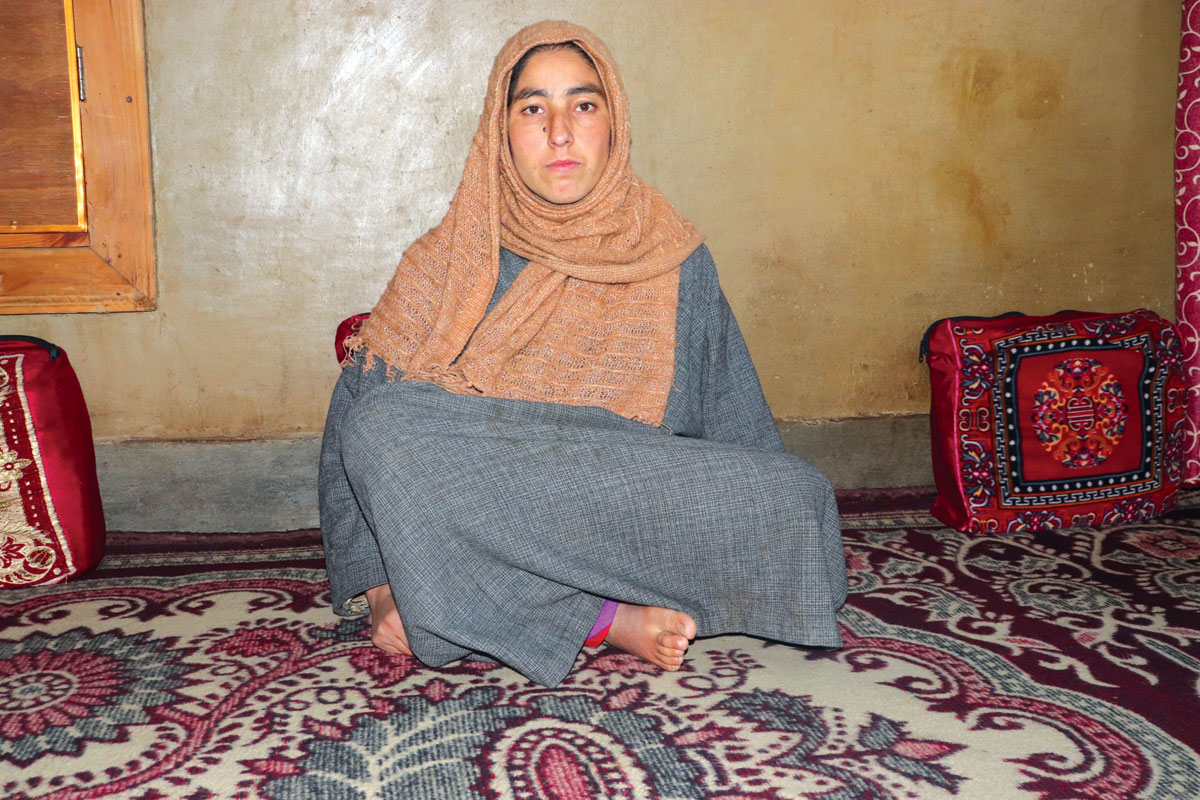
The family of Sheeraza was reluctant to let her donate her kidney. Even the doctors thought her donation might impact her marriage prospects later. One doctor even shared his personal experience saying his colleague divorced his wife after he came to know that her gallbladder was removed before marriage.
But Sheeraza listened to none. “I knew my life would be completely different after donating my kidney,” Sheeraza said. “I knew this could change everything but finding out someone you love struggling with a chronic condition is life changing. We had lost our mother and we wanted to make our father healthy again.”
Sheeraza, now 26, who gave her part to her father and helped him live longer, is now the family darling. Going to college no more, she is managing every household chore from the past two years. Abdullah was hospitalized for six months after surgery, but Sheeraza returned home just after 20 days of the donation. Both father and daughter live normal and healthy lives.
But she is not the only daughter who has donated a vital organ to her father.
Jameela has come to her parental home in Rambagh Srinagar for few days as her two sons had completed their school examinations. Married in Bemina, Jameela is the only daughter of her parents among three sons. The family spends time in giggles around. But, two years back, the situation was different. Everybody was in shock as Jameela’s father, Sikandar Bhat, was told that he had a severe kidney condition.
Bhat, a contractor, was stunned by the diagnosis. A doctor gave him two options: dialysis or a transplant. He believed dialysis was unreliable and costlier. At that time, his only hope was his family but unfortunately received a refusal from his sons to donate a kidney. Allegedly, deserted by his sons, Bhat was experiencing deep frustration and disappointment when his daughter Jameela came forward with a donation offer. Everyone opposed her decision but she remained adamant. “We didn’t want her to risk her life,” Bhat said. “She has her own family, her husband and two children.”
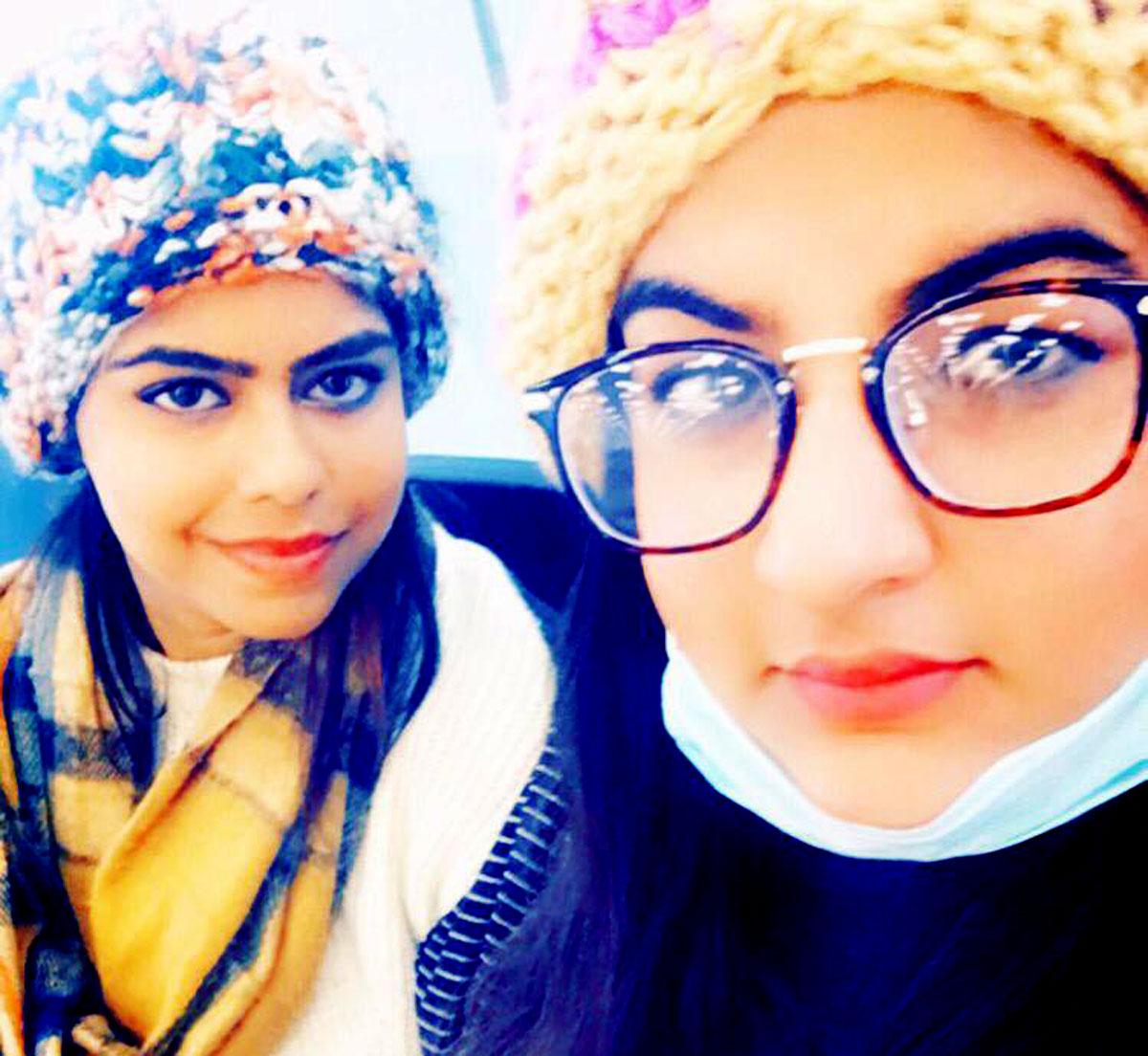
Bhat was maintained on dialysis till kidney transplantation was done at Max Hospital, Delhi. In the initial days of surgery, Jameela felt weakness along with some itchiness and pain but once the incision was healed she returned back to her home after two weeks. Her father, however, returned after eight months. “I am living a normal life after surgery,” Jameela, 42, said. “While being discharged from the hospital, I was prohibited from lifting heavier weights for few weeks.”
Jameela does not think she did anything huge for her father. “My father has raised me like a princess, he prioritized my wishes always in front of his needs,” Jameela said. “I feel like the luckiest girl in the world. I too had fears when it came to donating a kidney. But it was my husband who quelled my fears and assured me that I could lead a normal and healthy life with one kidney.”
Jameela’s husband, Mohammad Imran, owns a medicine shop and has a good knowhow regarding this issue. “After marriage, a girl leaves her house that does not detach her from other earlier relations,” Imran said. “I supported her because for me her donating kidney to her father is a virtue and not a problem.”“Indeed nothing can be more special for a father than a gift of life from his daughter,” a thankful Bhat said. “I have no words to express my gratitude towards her. She is my absolute hero. Not every child qualifies to be a lifesaver for the parents.” As a token of love, post- surgery, Bhat gifted some shops to Jameela to make her financially independent.
It is not a fact that all organ donations are done by the women. But it is a fact that they are more visible than men. Zaina Begum, 72, takes some rest while harvesting chillies in her vegetable garden, in the front yard of her home. She has filled the wicker basket with red chillies and wants her daughter-in-law to keep the harvest for sun-drying. Zaina’s mouth and nose are covered with a flu mask, which she has been carrying since she donated a kidney to her youngest son, Naseer Ahmed.
Seven years back, when Zaina learned of her 34-year-old son’s life-threatening kidney condition, she didn’t think twice about donating her kidney. A mother’s love knows no bounds. She is the only person who’ll never want anything in return but always seeks for the happiness of her kids. Zaina Begum gave a second birth to her ailing son by donating him her kidney.
Naseer, who is now 42 and father of two daughters was operated at PGI Chandigarh on February 16, 2012, six days after her second daughter’s birth. “I could not bear to see my son in that condition,” Zaina said. “He had a five-year-old daughter and his wife was expecting. I could have donated my both kidneys to save him.”
Zaina Naseer owns an adhesive business in his locality, Harnag Islamabad. He is on a low dosage of medication and has to get fortnightly checkups at SKIMS. “My life has not changed much barring that I visit the hospital after 15 days,” Naseer said. “In terms of diet, I simply take more water and avoid spicy food.”
Appreciating the efforts of such donors, Dr Mohammad Salim Najar, the former head of SKIMS nephrology department said that donating an organ is a big decision, “It is only in the five per cent of cases that the patient does not get the match from his family,” Dr Najar said. “But in much fewer cases, people come forward. I have seen people dying when their logical donors refuse a donation. We need to aware people about organ donations and transplantations. They should not be afraid to become donors because it will not affect their lives in any way.”
There are interesting cases as well. Abdul Majeed is one of them. He broke all the stereotypical thoughts when he donated his kidney to his daughter-in-law. When Raziya, 35, his daughter-in-law, suffered a renal failure and was advised a kidney transplant, Majeed was the first to make an offer.
By his donation, he changed the status of a stereotype father-in-law and saved the family of his son. The events before the donation were more interesting than the donation itself.
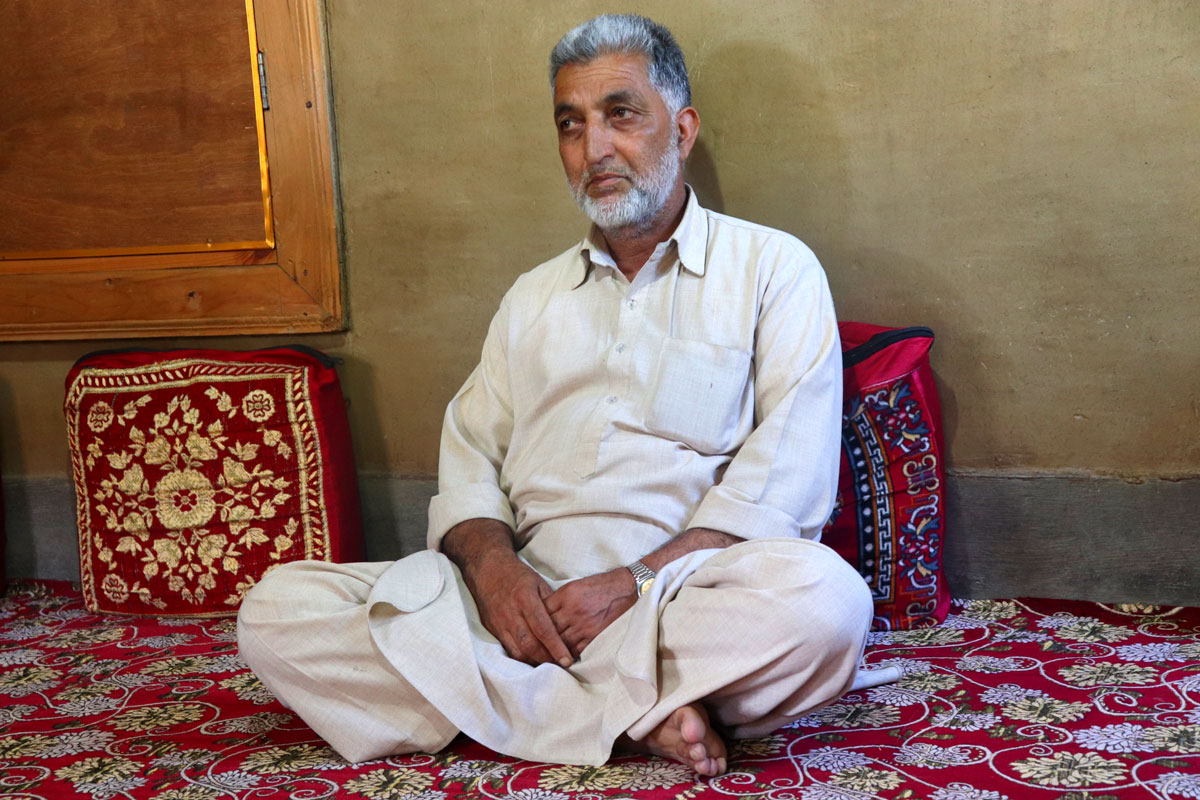
Married at an early age in Ellahi Bagh Srinagar, Raziya has two daughters. Her husband Aijaz Ahmad is a government employee. After a few years of marriage, the couple experienced some crises, which threatened to destroy their marriage. Raziya started living with her parents. It was during her stay there that she was reported unwell and she was flown to Delhi for treatment. When her in-laws came to know about her condition they rushed to the occasion. Even her husband, Aijaz was ready to donate his kidney, but like her own brothers, he too was not the absolute match.
Majeed, who proved that all fathers are not bound by blood, says that daughter-in-law is also a daughter of the family. “It was the decision nobody believed because it sounds unreal,” Majeed said, months after the donation. “When she was married, I had given a word to her father that I’ll treat her like my own daughter, what if my own daughter had been in such condition.”
Raziya is completely a different woman now. “I had always heard of the implicit rivalry of girls with their in-laws,” Raziya said. “But I am blessed to have such a family who does not differentiate between daughters and daughters-in-law.”
But society is an interesting human structure. It accepts people like Majeed heroes. At the same time, however, it rejects girls who donate their organs to their relatives. They are being seen “ineligible” in the marriage “market”. “Recently a marriage proposal came to us and the family got excited,” Nuzhat, a young lady from south Kashmir, said. “As soon as they heard that I have donated my liver, they rejected me.”
Nuzhat hails from Kulgam’s Budroo village. She donated her liver to save her cousin’s life. When Nuzhat realized she was a match for her cousin Mohammad Shafi she didn’t hesitate to donate a part of her liver. Nisar, 40, was going through a chronic liver disease. Nuzhat, who is working as a nurse in Kulgam hospital decided to become a life-saving donor for him. Nisar had liver cirrhosis because of abnormal weight and was treated in a 15-hour long surgery at Ganga Ram Hospital in Delhi.
“My parents supported my decision and I had faith in Allah,” Nuzhat said. “I took it as a chance to save someone’s life.”
Her cousin, Nisar believes that she saved not only his life but also his family. Shafi is a father to a daughter and three sons.
While being a donor and healthy now, she is now facing a new crisis: to get married and settle. The society is unwilling to see her as a life-saver.
Perhaps this is the key factor why the Udhampur social activist, Manjot Singh Kohli, 23, is facing a crisis in donating her kidney to her friend Samreen Akhtar, 22, a resident of Poonch. Manjot’s parents are against the very idea of donation.
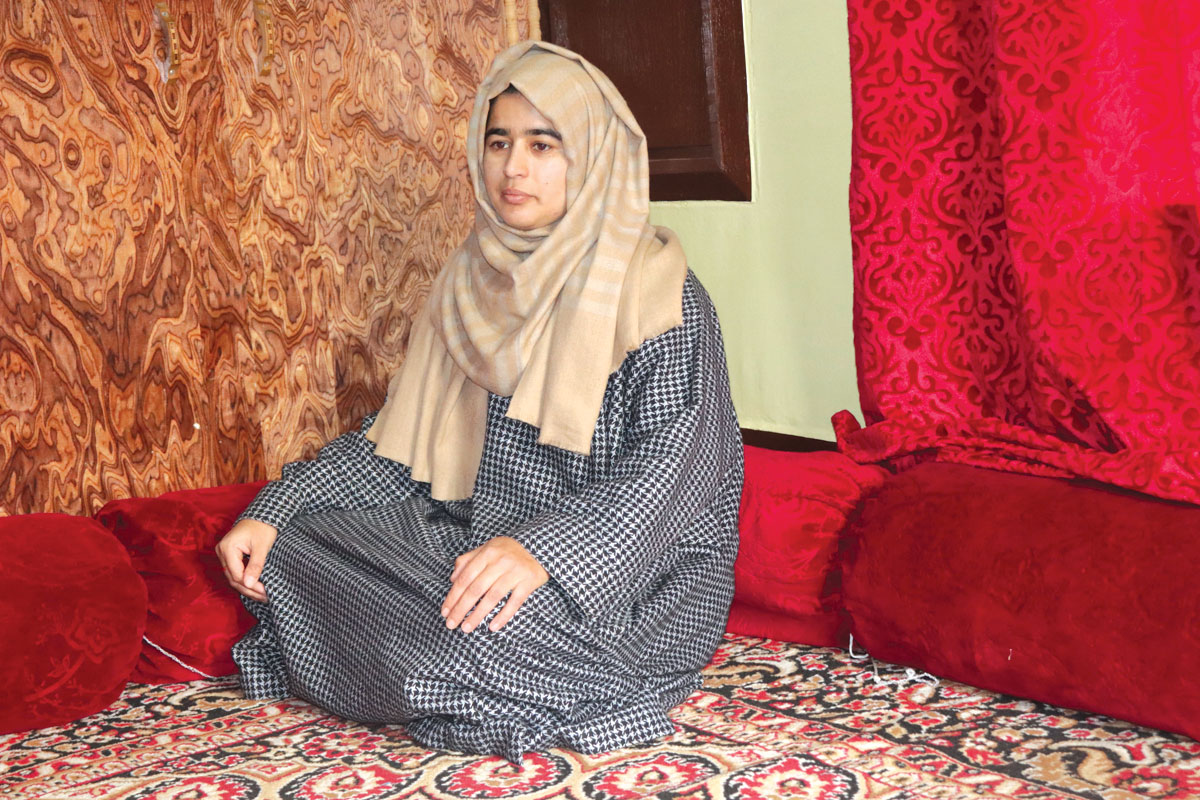
The two girls have been friends for the last four years. Manjot’s says she is “emotionally attached” to her and her humanity led her to decide that she must donate the organ. Akhter, she said, has been her friend and supporter in “tough times” and now when she needs a kidney, she is willing to give.
Though both of them have appeared before the authorisation committee of the SKIMS, Manjot’s father – almost reacting in panic after media blitzkrieg, has sent a legal notice to the SKIMS against the surgery.
“I will donate both my kidneys because I have seen everything in life but you are yet to start yours,” Gurdeep Singh, her father said in a video posted on social media. “At 22, you are donating your kidney and giving more grief to your papa. Your mom is dead. What will I do, who will feed us?” Her father, a businessman, is reportedly suffering from a disability.
But the girl is unrelenting. “A (dead) friend can never come back but relations can be mended,” Manjot told reporters after watching her father’s passionate appeal. “Saving lives is more important than saving relations.” She has said she couldn’t live at peace if she didn’t help Samreen. Now she is planning to get an order from the court to make her donation.
But the father is driven by the concerns of the society.















